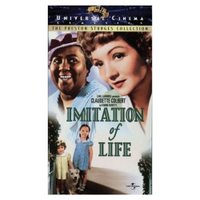Angels with Dirty Faces
 Michael Curtiz’s Angels with Dirty Faces (1938) is a fascinating glimpse into the nature of violence as a potentially cyclical and unshakeable pathological condition. This film, though marked as a Hollywood production, transcends its classical and genre-specific roots to become a unique experience by virtue of its impeccable script and performances.
Michael Curtiz’s Angels with Dirty Faces (1938) is a fascinating glimpse into the nature of violence as a potentially cyclical and unshakeable pathological condition. This film, though marked as a Hollywood production, transcends its classical and genre-specific roots to become a unique experience by virtue of its impeccable script and performances.Rocky Sullivan (James Cagney) and Jerry Connelly (Pat O’Brien) are youths who pride themselves on being petty thieves. While Jerry escapes the police during one particular raid and transforms himself into a virtuous priest, Rocky is caught and thrown into reform school. The conditions within the school, though, actually lead him to further transgressions, since he comes to understand how to mastermind and perfect a criminal’s life. When Rocky is released from prison, he returns to a life of crime by shepherding a bunch of young street thugs while simultaneously renewing his friendship with Jerry and romancing a girl. Rather than belabor the romance angle, however, Curtiz notes it and moves on, for the film is about the idea of living by example, not by leading with money. Though Sullivan is engaging and powerful, his is a persona grounded in the over-investment of male bravado and pathology. Thus, violence cannot be substituted with a more normative reaction, such as forgiving or pardoning the offender, but instead must be returned in kind. While Sullivan shepherds and disciplines the overly-posturing street thugs, his power and pull throughout the town will inevitably train them to identify that respect is gained by being the aggressor. This type of reinforcement, while perhaps true for Sullivan, will undoubtedly carry its negative repercussions far beyond Sullivan’s life. To paraphrase Rilke, he must change his life.
And somehow Curtiz and his screenwriters makes this point work, never letting it become condescending (as it does come from a corporate studio company). When Rocky is finally captured and faces his execution, Jerry comes to him and asks him to sacrifice his bravado and masculine egotism and assume the role of a redemptive, whimpering man about to be executed. The reason, of course, is that this is the only way to secure a positive example for the street thugs and show them that violence and its pathological behaviors are not the answer, and that devotion and fidelity to the law and God are.
The film is brilliant for its refusal to posit why Rocky finally sacrifices his machismo, since such a positing immediately panders to the audience. Instead, Curtiz leaves Rocky’s reasons ambiguous, since it is entirely possible that Rocky was finally overcome by fear over his impending death, just as it is possible that he feels some responsibility to shepherding his disciples to a truer path. This is a marvelous film about the repercussions of human responsibility to others, as well as an around engaging film.
Angels with Dirty Faces: 10/10

















